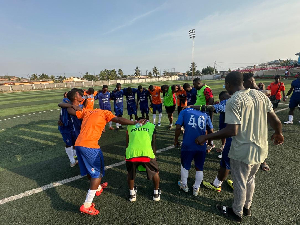The African Development Bank, together with partners – The Rockefeller Foundation, Microsoft and Facebook – launched the Coding for Employment Program at the African Innovation Summit in Kigali, Rwanda. By training youth in demand-driven Information and Communications Technology (ICT) curriculum and matching graduates directly with ICT employers, this new Program prepares Africa’s youth for tomorrow’s jobs and unleashes the next generation of young digital innovators from the continent. Coding for Employment will create over 9 million jobs and reach 32 million youth and women across Africa.
The Coding for Employment Program is at the center of the African Development Bank’s Jobs for Youth in Africa Initiative, which aims to put Africa’s youth on a path to prosperity. By 2025, the Jobs for Youth in Africa Initiative will equip 50 million youth with employable skills and create 25 million jobs in agriculture, information communications and technology and other key industries across Africa.
Over the last 15 years, the African Development Bank has invested US $1.64 billion in programs to prepare youth for careers in science, technology and innovation. Putting youth at the center of Africa’s inclusive economic growth agenda is at the forefront of the African Development Bank’s investments and its “High 5s” priorities —building businesses, feeding the continent, expanding power and integration, and improving the quality of life for the people across the continent by preparing youth for today’s competitive digital world.
As the world moves towards a fourth industrial revolution, the demand for digitization across health, education, and other sectors is on the rise. Digital innovations have the power to solve the continent’s development challenges and are generating new job opportunities. The youth population is rapidly growing and by 2050, is expected to double to over 830 million. Yet, the digital divide in Africa persists and critical skills gaps pose serious challenges to youth securing quality and decent work in a rapidly changing workforce.
“Coding for Employment accelerates investments in Africa’s most valuable resource – its young women and men. That’s why The Rockefeller Foundation is thrilled to join forces with the African Development Bank to help every young African reach their full potential. Our partnership with the African Development Bank will establish 130 Centers of Excellence across Africa to help bridge the gap between the digital hiring news of employers and the skills of Africa’s youth,” affirmed Mamadou Biteye, OBE, The Rockefeller Foundation’s Managing Director for Africa.
According to Ghada Khalifa, Director of Microsoft Philanthropies for the Middle East and Africa, “Digital skills are fast becoming essential for the jobs of today and tomorrow. Unfortunately, these skills are beyond the reach of too many young people in Africa. Together with our partners like the African Development Bank, we are working to change that. The partnership between Microsoft and the African Development Bank will continue to focus on increasing the participation of underserved youth and women while equipping youth across Africa with the skills needed to fill jobs now and in the future,” she said.
“We are excited to partner with the African Development Bank on the launch of the coding for employment program in Côte d’Ivoire, Kenya, Nigeria, Rwanda and Senegal. Coding for Employment ensures digital skills are accessible to young people and supports youth with securing meaningful opportunities where they can apply their talents, ideas and expertise to advance the continent’s economic and social development,” said Sherry Dzinoreva, Head of Policy Programs at Facebook.
“By working together with the private sector, donors, policy-makers, and other stakeholders, we can secure a brighter future for young African women and men. As part of this new Program, we seek to cultivate the next generation of innovators and to empower young women to lead the continent’s digital revolution. Investments in youth through programs like Coding for Employment can stimulate inclusive economic growth, put Africa and its youth on the cutting edge of technological innovations and ensure the digital transformation of Africa is led and managed by young Africans for the benefit of the people of Africa,” said Oley Dibba-Wadda, Director of Human Capital, Youth and Skills Development at the African Development Bank.
General News of Saturday, 9 June 2018
Source: kasapafmonline.com
African Development Bank launches Coding for Employment Program
Entertainment












